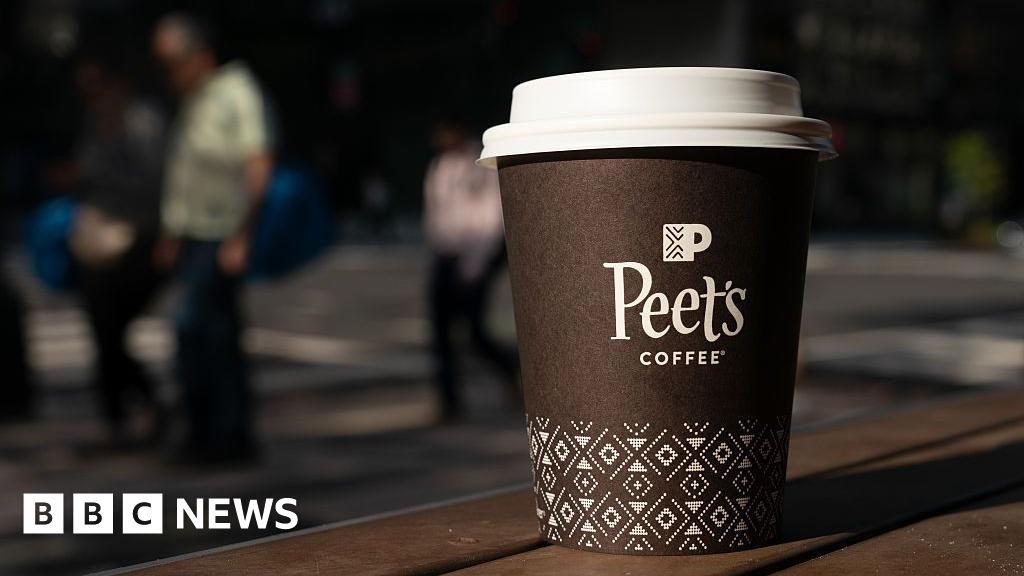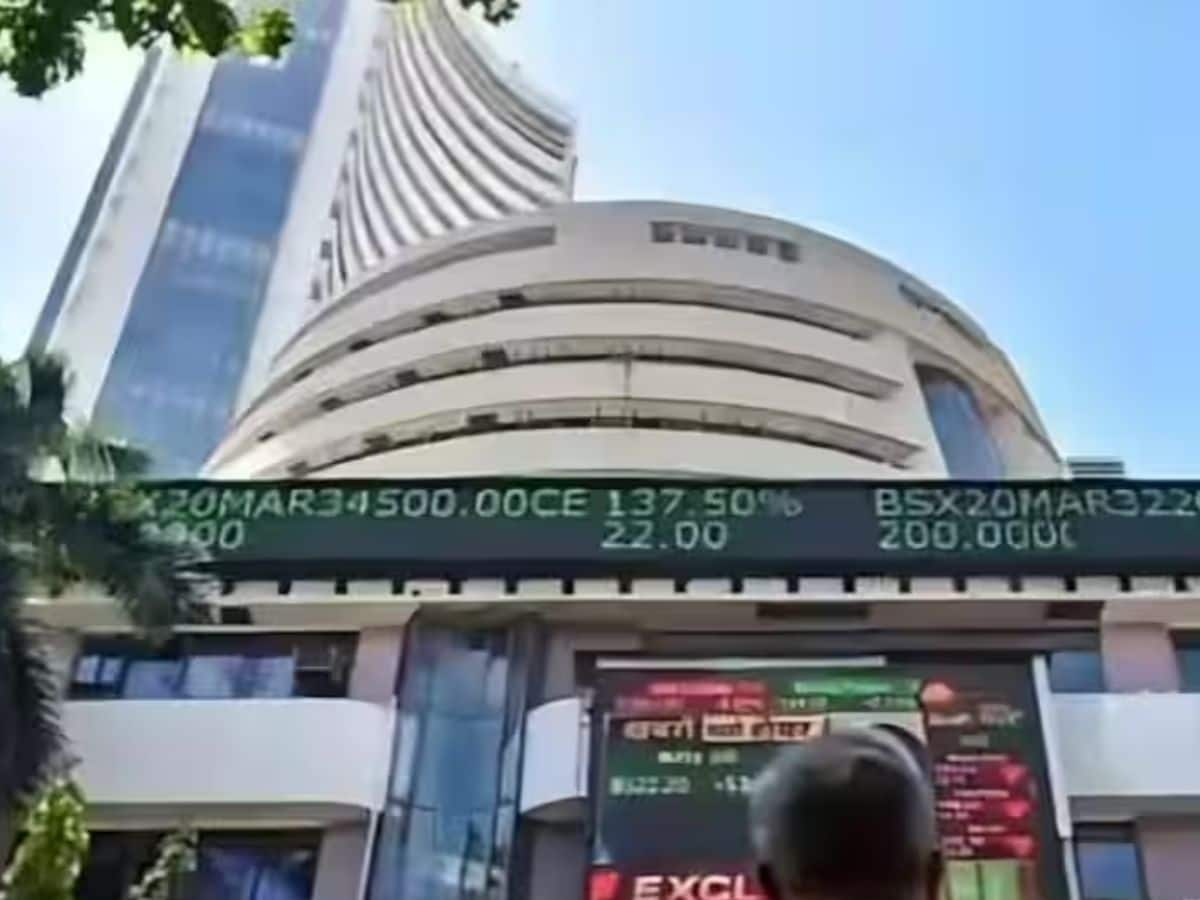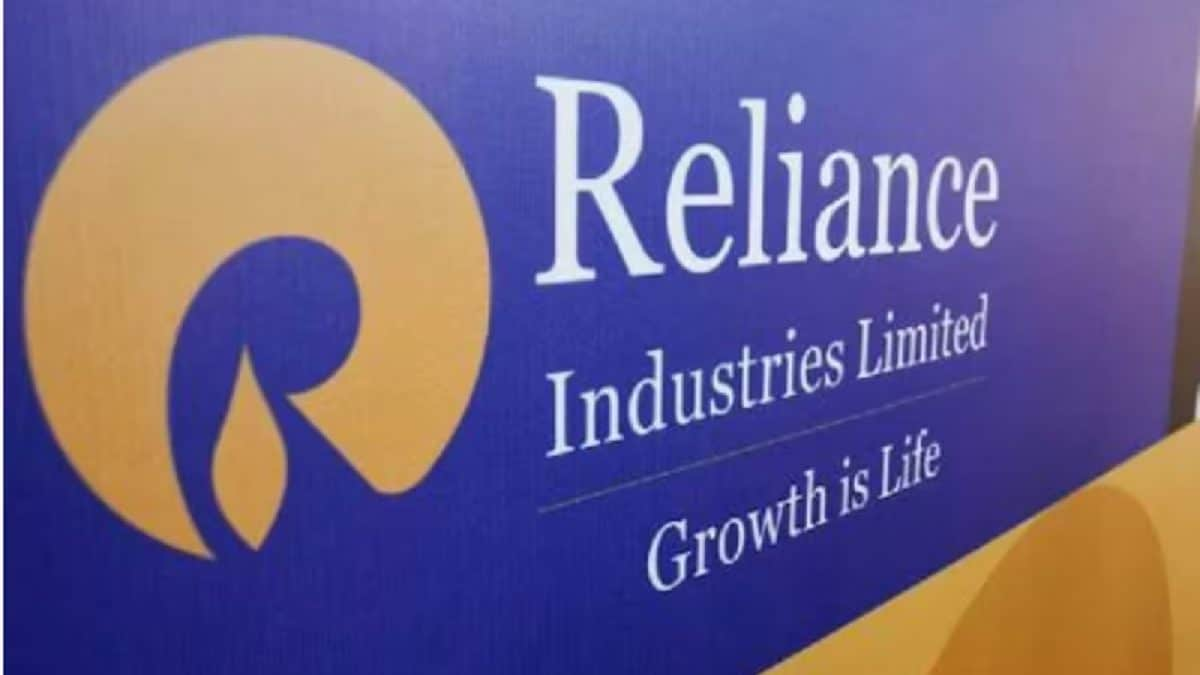Business
Keurig Dr Pepper to buy Peet’s coffee for $18bn

 Bloomberg/Getty Images
Bloomberg/Getty ImagesUS drinks giant Keurig Dr Pepper has agreed to buy Dutch coffee firm JDE Peet’s for €15.7bn (£13.6bn, $18.4bn) in the largest European acquisition in more than two years.
The companies plan to split into two US-listed firms after the merger, with one focused on coffee brands including Douwe Egberts and L’Or – while the other will sell soft drinks such as Schweppes, Snapple and 7 Up.
Executives said the purchase was intended to create a “resilient and diversified” coffee business, forming a “global coffee champion” at a time when the industry is grappling with tariffs and high prices for coffee beans.
And Keurig Dr Pepper boss Tim Cofer said it was “the right time” for the transaction.
But shares in the firm sank more than 7% after the deal was announced amid concerns it was backing away from the strategy which created the US drinks behemoth – a merger between Dr Pepper’s soda business and Green Mountain Coffee.
At the time, executives said they saw advantages in combining the distribution network, but it has struggled to deliver on that promise.
Last month, Keurig Dr Pepper executives told investors they expected growth in its coffee business to remain “subdued” this year, in part citing the hit from tariffs in the US, its most important market.
The new general soft drink business will be based in Texas and led by Mr Cofer.
Meanwhile the new merged coffee company, headquartered separately in Massachusetts, will boast a portfolio of brands representing $16bn in annual sales.
Executives said it would benefit from a global manufacturing footprint of more than 40 facilities.
Jacobs Douwe Egberts merged with Peet’s in 2019, creating JDE Peet’s, which was taken public the next year.
But the firm struggled to live up to expectations at a time when droughts in major coffee producing countries such as Brazil and Vietnam have driven up prices of raw coffee.
Earlier this year, it clashed with retailers in Europe over price increases, though it recently told investors it had resolved most of those disputes.
The deal values JDE Peet’s shares at €31.85 apiece, about 20% higher than the price they fetched before reports of the deal started to circulate last week, though still below their 2020 peak.
The gains are a boon for JAB Holding Co, the investment firm owned by the German Reimann family, which held nearly 70% of the voting power in JDE Peet’s.
It also owns about 4% of Keurig Dr Pepper.
Business
Zipcar to end UK operations affecting 650,000 drivers

Car-sharing firm Zipcar has confirmed it is stopping operations in the UK after launching a consultation late last year.
The move will hit the company’s roughly 650,000 drivers across the country.
On December 1, the US-based company told customers in the UK that it planned to suspend new bookings temporarily at the turn of the year.
The business, which had 71 UK employees at the end of 2024, launched a formal consultation with staff as a result.
On Friday, in a fresh email to customers, the business said it “can now confirm that Zipcar will cease operating in the UK”.
The company added: “In accordance with clause 7.5 of the member terms, please take this as your written notice that we will formally close your account in 30 days’ time.
“It’s not possible to make any new bookings with Zipcar UK at this time, but your account will remain open until February 16.”
It added that customers will be entitled to a pro-rated refund for any remaining periods on current plans or subscriptions, from the start of 2026.
Zipcar said this will be done automatically and will not require any action from users.
Accounts showed that the van and car hire firm saw losses deepen to £5.7 million in 2024 after a decrease in customer trips.
Business
Budget 2026: Will Markets Be Open On February 1? Full Details Inside

New Delhi: Good news for investors and market watchers! Even though February 1 falls on a Sunday this year, the Indian stock markets will remain open for trading on Budget Day. Both the BSE and NSE announced on January 16 that trading will take place as per normal market hours on February 1 for Budget 2026. This special arrangement ensures that investors can react to Budget announcements in real time, without waiting for the next trading session.
The NSE clarified the special trading arrangement in a circular, stating, “On account of the presentation of the Union Budget, members are requested to note that Exchange shall be conducting live trading session on February 01, 2026, as per the standard market timings (9:15 am-3:30 pm),” said NSE in a circular.
Union Budget 2026 to be presented on February 1 at 11 am
The Union Budget for 2026 will be presented at 11 am on Sunday, February 1, the Lok Sabha Speaker confirmed on January 12. In recent years, February 1 has become the fixed date for the annual Budget presentation, a trend that continued with the 2025 Budget as well. The upcoming Budget will also be a significant milestone for Finance Minister Nirmala Sitharaman, as it will be her ninth consecutive Union Budget, placing her among finance ministers with the longest uninterrupted Budget tenures.
Trading details for Budget Day explained
While most core market segments will remain open during regular trading hours on Budget Day, some services will stay shut. The BSE has clarified that the T+0 settlement session and the auction session meant for settlement defaults will not be operational. At the same time, the NSE confirmed that trading in capital markets and derivatives will continue as usual.
Stock market holiday list remains the same
The stock market holiday calendar for 2026 remains unchanged, with Indian exchanges observing 16 public holidays apart from weekends. The next scheduled market closure this month will be on January 26. In the first half of the year, markets will remain shut on key occasions such as Holi (March 3), Ram Navami (March 26), Mahavir Jayanti (March 31) and Good Friday (April 3). Trading will also be suspended on Ambedkar Jayanti (April 14), Maharashtra Day (May 1) and Bakri Id (May 28).
In the second half of the year, markets will close on Muharram (June 26), Ganesh Chaturthi (September 14), Gandhi Jayanti (October 2), Dussehra (October 20), Diwali Balipratipada (November 10) and Guru Nanak Jayanti (November 24). Christmas, on December 25, will be the final market holiday of 2026.
Business
Reliance Industries Q3 Results: Revenue Rises 10% On Digital, Oil-To-Chemicals Growth

Last Updated:
Reliance Industries Q3 FY26 Financial Results | Earnings remained resilient during the December quarter despite pressure in upstream oil & gas exploration and production business.

Reliance Industries Q3 Results.
Reliance Industries Ltd reported a resilient performance in the fiscal third quarter, with consolidated revenue rising 10 percent from a year earlier to Rs 2.94 lakh crore, led by growth in its digital services, oil-to-chemicals (O2C) and retail businesses.
Net profit (pre minority) for the fiscal third quarter rose 1.6 percent from a year earlier to Rs 22,290 crore, while profit before tax increased 3.7 percent to Rs 29,697 crore.
Consolidated EBITDA rose 6.1 percent to Rs 50,932 crore, supported by earnings growth in the digital services and O2C segments, helping offset weakness in the upstream oil and gas business.
“Reliance’s consolidated performance in 3Q FY26 reflects consistent financial delivery and operational resilience across businesses,” said Mukesh Ambani, Chairman and Managing Director, Reliance Industries Ltd, in a statement on Friday.
The O2C business benefited from a sharp increase in transportation fuel cracks, which rose 62-106 percent from a year earlier during the third quarter. This improvement was partly offset by lower downstream chemical margins and higher feedstock freight rates. Overall, O2C EBITDA rose 15 percent from a year earlier to Rs 16,507 crore, helped by higher volumes and a continued ramp-up in fuel retail operations.
The Jio-bp fuel retailing business maintained its growth momentum, with fuel volumes rising 24 percent, supported by strong growth in gasoline and high-speed diesel sales. The retail network expanded further, with Jio-bp operating 2,125 outlets at the end of December, a 14 percent increase from a year earlier.
“Robust growth in O2C business was led by significantly higher fuel margins with favorable demand-supply dynamics, along with operational flexibility. I am happy to highlight the strong growth in our fuel retailing business, with continuing expansion of the Jio-bp network,” Ambani added.
The digital services business delivered strong growth, with revenue rising 12.7 percent to Rs 43,683 crore. EBITDA from the segment grew 16.4 percent YoY to Rs 19,303 crore, aided by accelerated subscriber additions and a 170-basis-point expansion in margins.
Reliance Jio’s subscriber base increased to 515.3 million, with its 5G user base crossing 250 million during the quarter. Total home connects crossed 25 million, while JioAirFiber became the first fixed wireless access service globally to surpass 10 million subscribers, ending the quarter with 11.5 million users. Average revenue per user (ARPU) rose 5.1 percent from a year earlier to Rs 213.7.
“This quarter, Jio expanded its subscriber base further, through attractive propositions enabled by its comprehensive, indigenous technology stack tailored for Indian markets. The business delivered a robust financial performance with 16.4% growth in EBITDA,” said Ambani.
JioStar continued to report strong operational performance, maintaining leadership across key platforms and genres.
In contrast, the oil and gas business weighed on overall performance, affected by lower production from the KGD6 block due to natural decline in the reservoir and weaker price realisations, along with higher operating costs related to periodic maintenance activity. EBITDA declined 13 percent from a year earlier to Rs 4,857 crore. Revenue from the segment fell 8.4 percent to Rs 5,833 crore.
The retail business posted revenue of Rs 97,605 crore, an increase of 8.1 percent from a year earlier. Growth, however, was impacted by the distribution of festive demand between the September and December quarters, the demerger of Reliance Consumer Products Ltd, and GST rate rationalisation. Despite these, retail EBITDA rose to Rs 6,915 crore. During the quarter, Reliance Retail operated 19,979 stores, with a total operational area of 78.1 million sq ft, while hyper-local delivery operations saw a near fivefold jump in average daily orders.
“Our Retail business also had an eventful quarter, strengthening its portfolio with the onboarding of fresh new brands and product ranges. The demerger of consumer products business came into effect this quarter. With a broad and diverse product basket ranging from classic Indian brands to new age labels, the consumer products vertical is progressing on its accelerated growth trajectory with a focused organizational structure,” said Ambani.
During the quarter, capital expenditure stood at Rs 33,826 crore, which was fully covered by cash profits of Rs 41,303 crore. Net debt declined sequentially to Rs 1.17 lakh crore as of December 31, reflecting balance sheet stability.
Disclaimer:Network18 and TV18 – the companies that operate news18.com – are controlled by Independent Media Trust, of which Reliance Industries is the sole beneficiary.
January 16, 2026, 19:28 IST
Read More
-

 Entertainment1 week ago
Entertainment1 week agoDoes new US food pyramid put too much steak on your plate?
-

 Politics1 week ago
Politics1 week agoUK says provided assistance in US-led tanker seizure
-

 Entertainment1 week ago
Entertainment1 week agoWhy did Nick Reiner’s lawyer Alan Jackson withdraw from case?
-

 Sports6 days ago
Sports6 days agoClock is ticking for Frank at Spurs, with dwindling evidence he deserves extra time
-

 Business1 week ago
Business1 week agoTrump moves to ban home purchases by institutional investors
-

 Sports1 week ago
Sports1 week agoPGA of America CEO steps down after one year to take care of mother and mother-in-law
-

 Tech4 days ago
Tech4 days agoNew Proposed Legislation Would Let Self-Driving Cars Operate in New York State
-
Sports7 days ago
Commanders go young, promote David Blough to be offensive coordinator





